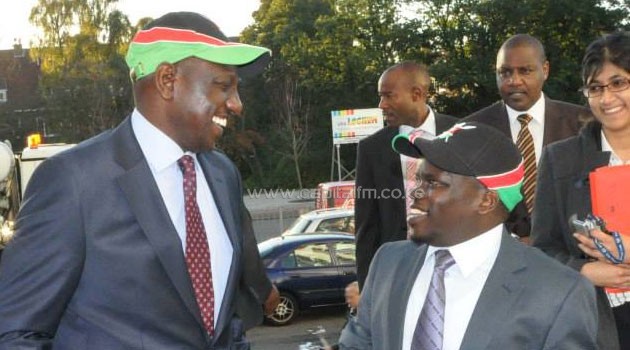
Charges against Ruto and Sang were confirmed while charges against former Industrialisation Minister Henry Kosgey were dropped/FILE
But the possibility of halting the trial after the prosecution concludes its case is minimal, in the view of Harvard University law professor Alex Whiting.
“However, because the judges must take the prosecution’s evidence at its highest during this process, these motions very rarely succeed,” Whiting explained to Capital FM News.
At the ICC, the motion of no-case-to-answer is not clearly defined or provided for in the rules of procedure unless through an application to the judges.
“The no-case-to-answer procedure is not explicitly provided for in the ICC Statute or Rules. In contrast, it is in the ad-hoc tribunal rules at the ICTY (International Criminal Tribunal for the former Yugoslavia) and ICTR (International Criminal Tribunal for Rwanda),” Whiting says.
According to Whiting, the motion is ambiguous at the ICC because there is the confirmation stage where judges at the Pre-Trial Chamber by confirming charges against suspects, means they have a case to answer and believe that the prosecution has a case to make at the trial stage.
In Kenya Case One, charges against Ruto and Sang were confirmed while charges against former Industrialisation Minister Henry Kosgey were dropped.
In Kenya Case Two, charges against President Uhuru Kenyatta and former Head of Civil Service Francis Muthaura were confirmed while former Police Commissioner Hussein Ali was cleared.
Muthaura was later let off the hook after the testimony of the only witness relied upon to confirm his charges admitted that he had lied to the court and his evidence was withdrawn.
The motion of no-case-to-answer arose in the Ruto, Sang case because the defence teams made the request and the judges granted it.
In the ICC cases against Thomas Lubanga who was facing war crimes committed in the Democratic Republic of Congo and Congolese ex-militia leader Germain Katanga the motion of no-case-to-answer was never made.
In the ad-hoc tribunal rules such as those governing the ICTY and ICTR, the motion of no-case-to-answer is explicit in the rules.
ICTY cases against former Bosnian Serb army commander Ratko Mladic and wartime Croatian Serb political leader Goran Hadzic, under tribunal rule, 98-bis, the defence teams filed a motion of no-case-to-answer.
The ICTY judges however rejected the request to have the cases terminated upon the conclusion of the prosecution’s case.








































